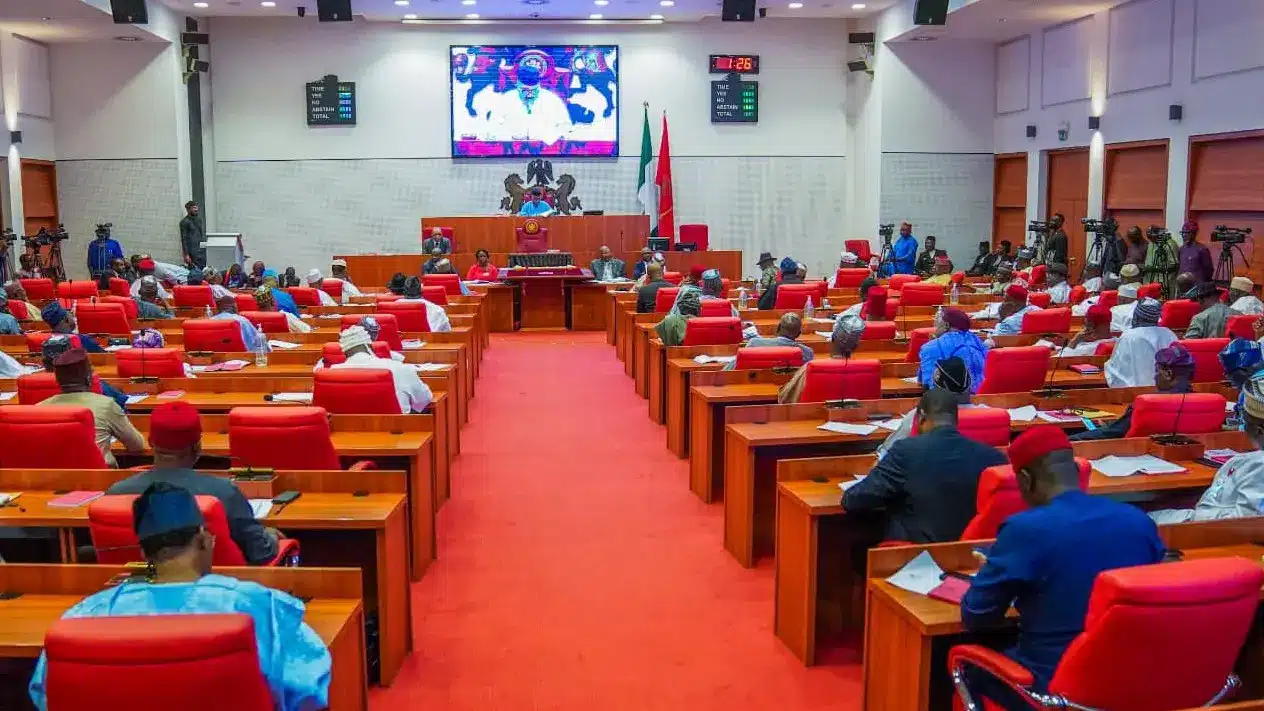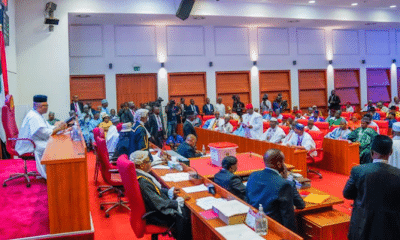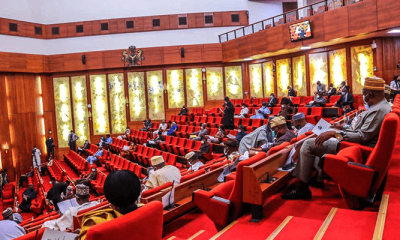Nigeria News
CBN Act Amendment Bill Seeking Limit On Ways And Means Passes Second Reading

The bill for an Act to amend the Central Bank of Nigeria (CBN) Act 2007 passed a second reading on the floor of the Nigerian Senate.
The bill was read for the first time in the Senate on Tuesday, January 30, 2024, led by the Chairman of the Senate Committee on Banking, Insurance and Other Financial Institutions, Senator Adetokunbo Abiru (APC – Lagos East).
Senator Abiru sponsored the bill, and forty-one (41) committee members of the Banking, Insurance and other Financial Institutions co-sponsored the bill.
In his debate, Abiru submitted that the amendments were proposed to empower the apex bank further to deliver on its principal mandates in line with section 2 of the Act.
He argued that the bill was overdue for amendments, noting that, “ The current Act of 2007, which charges the Bank with the overall control and administration of the monetary and financial sector policies of the federal government, has not been amended for over 16 years despite growing changes to the Bank’s Balance sheet as well as challenges in monetary policy implementation occasioned by fiscal dominance and the rapidly changing financial landscape”.
For proper alignment of monetary and fiscal policies, Abiru disclosed that the new bill is proposing a Coordinating Committee for Monetary and Fiscal Policies to set internally consistent targets of monetary and fiscal policies that are conducive to controlling inflation and promoting financial conditions for sustainable economic growth; Applying caps to any fiscal deficit at a level that can be financed without having recourse to direct monetary financing from the Bank, that is Ways and Means; amongst other necessary measures.
Membership of the proposed Committee shall consist of the Minister of Finance, who shall be the Chairman; the Minister of Budget and Economic Planning; the Minister of Industry Trade and Investment; the Minister of Agriculture; the Governor of the Central Bank of Nigeria; the Chief Economic Adviser to the President; Director General of the Securities and Exchange Commission.
The Bill also recommends a six-year single-term tenure for the governor of the CBN and deputy governors.
For external directors appointed on the board of the CBN, the bill proposed that they should hold office for a non-renewable term of five years (one year less than the six-year tenure of the Governor and Deputies).
Among the four Deputy Governors provided under section 6 (2) of the current Act, the amendment bill recommends at least one career staff should be elevated to the position of Deputy Governor from within the bank.
The Bill also proposes the establishment of the office of a Chief Compliance Officer for the Bank, of the rank of a Deputy Governor, who reports directly to the board and may occasionally be summoned to appear before the relevant committee of the National Assembly.
On ways and means, the Bill proposes that advances the apex bank can grant the Federal Government should not exceed 10% of average government actual revenues during the preceding three years.
The Bill added that to determine the government’s actual government revenue, proceeds from asset sales shall be excluded to avoid capturing revenues from exceptional items.
Also, such temporary loans should be repaid in full within three months from the date it is made available.
In order to minimize default risk, any sum which becomes outstanding at the end of the expiration of the credit period should be held against and recovered from the proportion of the Federal Government’s FAAC Receipts, the Bill proposed.
Four directors of the CBN were also screened by the Senate Committee on Banking, Insurance and Other Financial Institutions on Tuesday.
They are Robert Agbede, Ado Yakubu Wanka, Prof. Muritala Saba Sagaji, Muslimat Olanike Aliyu.











